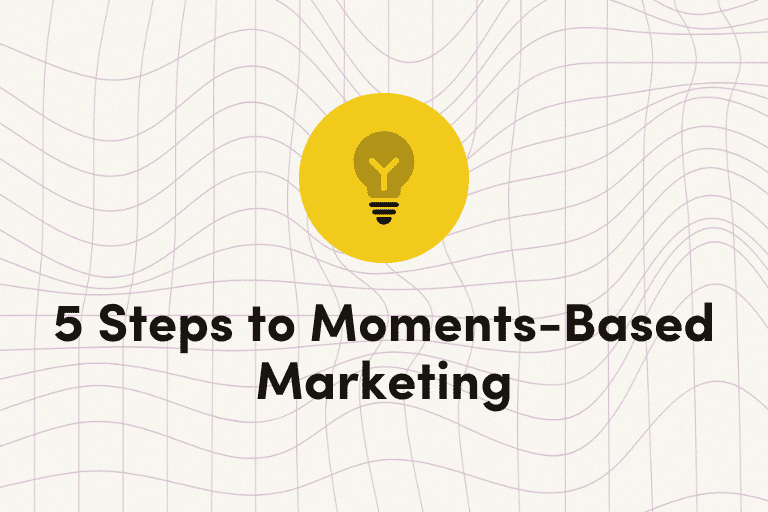What does “personalized marketing” really mean? In part three of our Winning Customer Loyalty Series, we’ll be diving deeper into some thoughts on personalization—specifically individualization—shared by Forrester’s Brendan Witcher, who was featured in our webinar “Hot or Not: The 2022 Imperatives for Winning The Loyalties of Today’s Consumers.”
Personalization is the umbrella under which individualization lives. Personalized marketing is all about creating a unique, relevant experience for consumers interacting with your brand. Through segmentation and triggered messages, brands can achieve a level of personalization that promotes engagement and brand interactions. However, creating a unique customer experience should be about building a long-lasting relationship. So, while brands may think they’re acing personalization, customers have to be able to feel the impact of their efforts.
“The truth of the matter is most companies today don’t get personalization, right? And it comes a lot from not understanding who the customer is.’”- Brendan Witcher
To take personalization one step further, brands need to start investing in individualization—make the customer feel like they’re the only one you’re talking to.
What is Individualization in Marketing?
Individualized marketing is an advanced level of personalized marketing. It’s about building a customer profile for each user. Think beyond personas and segments and get into what the individual customer needs and wants. If you’re building a personalization cake, customization and segmentation are the base layers of creating unique experiences and individualization is the icing on top.
“If you don’t understand who the customer is…you can’t move to this next generation of personalization, which is individualization” – Brendan Witcher
The key to individualization is forming a holistic picture of each customer—not easy. In the past, we’ve used segments and personas to group customers into similar buckets, allowing us to appeal to multiple customers at a time with similar, yet customized messaging.
With individualization we’re aiming to create one-to-one relationships to appeal to the one customer you’re trying to reach. As LiftIgniter says, “Individualization speaks directly to each individual within those groups, and requires a much richer data set.” What’s interesting, however, is why this level of personalization has started to gain popularity.
Why Individualization Matters Now
Personalized marketing is no longer optional. It’s not a nice-to-have, it’s a need-to-have. As a result of the digital transformation brought on by the Covid-19 pandemic, customers are aware of brands’ capabilities and expect more. Like McKinsey said, “Seventy-one percent of consumers expect companies to deliver personalized interactions. And seventy-six percent get frustrated when this doesn’t happen.” Personalization is standard practice. What’s new, however, is the idea that brands can reach individuals and tailor marketing messages to those individuals.
“Individualization focuses on two very important parts. It focuses not on the customer lifecycle, but on that experience right there. What does this customer want right here, right now?” – Brendan Witcher
Like we mentioned in part one of this series, customers are drawing industry-agnostic comparisons between brands. Meaning that when one digital brand advances their customer experience, customers now expect that capability from all digital brands they interact with, regardless of industry. So, the advancement of data capabilities allows brands to implement individualization, and, because of that, it’s becoming an expectation. It’s a snowball effect. If a pizza brand can offer a customer a coupon for their favorite pizza, for example, customers will start wondering why their go-to clothing brand can’t do the same. The best part? When a brand shows they know their customers, it establishes loyalty.
How It Builds Loyalty
Think about any relationship you’re in, outside of work. When the other person pays attention to your likes and dislikes, your wants and needs, and understands your perspectives, it establishes trust. It’s not easy to find someone that knows you inside and out, so when you do, you hang onto them. Same thing goes for a customer-brand relationship.
“Our [customer] relationship is a two way street. It’s not just saying, well, we know you’re interested in buying something. And so we’re now going to send you a promotion. It’s about saying, what do you value? What do you need? What’s going to keep you loyal to our brand when we know that what we carry, lots of other people carry too. And telling you what we carry or what we offer isn’t going to keep you as a loyal customer.” – Brendan Witcher
As a brand you may think, “well, that’s fine and dandy, but how am I supposed to appeal to individuals without being able to get information from the customer?” Here’s the thing, customers are very willing to share their data with you if it means they’ll have an individualized experience going forward. Really, you just have to ask. Zero-party data is the wave of the future. The key, however, is that once you have that invaluable information, you have to do something with it.
“Now, what do you need to do to get information out of customers? You have to add perceivable value to the experience for them to share. This is so key and people forget it all the time. You hear about these surveys and people talk about privacy and we don’t want to share. There’s a big lie. We love talking about ourselves.” – Brendan Witcher
The moral of the story? Talk to your customers, use those conversations to collect data, and use that data to create individualized customer experiences to establish a relationship and win customer loyalty.
To get the inside scoop on individualization, watch the webinar.
































